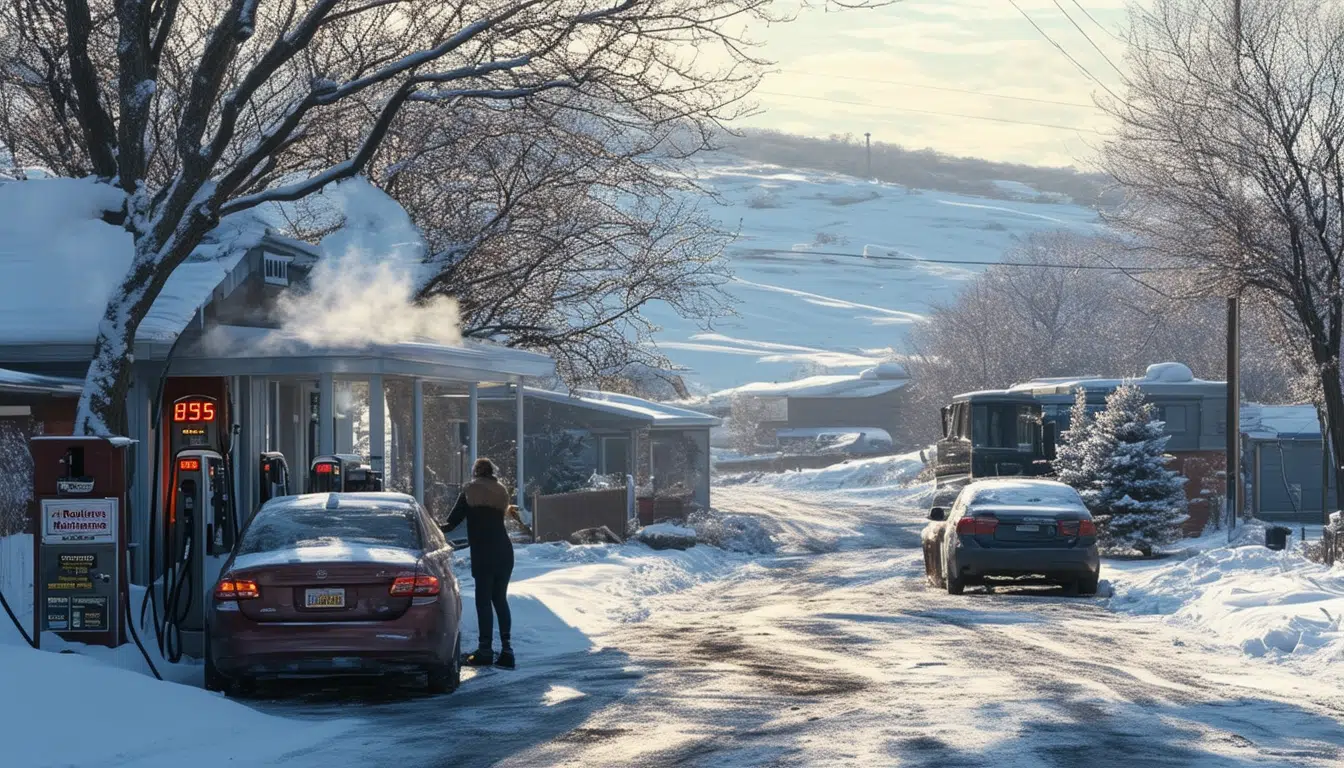effective tips to reduce gasoline consumption in winter

During the winter months, gasoline consumption tends to increase due to low temperatures and adverse weather conditions. This not only affects our budget, but also negatively impacts the environment. For this reason, it is essential to know and apply effective tips to reduce gasoline consumption. From keeping the vehicle in optimal condition to adopting more efficient driving styles, every action counts toward achieving significant and sustainable savings during this season.
In the winter months, gasoline consumption tends to rise due to low temperatures and adverse weather conditions. To mitigate this impact on the family economy and contribute to environmental sustainability, here are effective strategies you can implement to reduce gasoline consumption. From vehicle maintenance to changes in driving habits, every action can make a significant difference.
Proper vehicle maintenance
A well-maintained vehicle is essential for optimizing fuel consumption. Perform regular preventive maintenance that includes changing air filters, checking fluid levels, and maintaining tire pressure at the appropriate levels. According to studies, deflated tires can increase gasoline consumption by up to 20%. For more information on how tire conditions affect fuel consumption, visit this link.
It is also essential to check the battery’s condition, as cold weather can affect its performance, indirectly influencing gasoline consumption. An efficiently running engine not only saves fuel but also extends the vehicle’s lifespan.
Efficient driving habits
The way you drive can considerably affect gasoline consumption. Avoiding abrupt accelerations and braking is key; instead, aim to accelerate gently and anticipate stops. This not only improves consumption efficiency but also contributes to safer driving. Additionally, be mindful of using the vehicle’s heating system, as excessive use can increase energy expenditure and, therefore, fuel consumption.
Route planning
Planning trips in advance is another effective strategy to save gasoline. Use navigation apps to avoid congested routes, which will not only decrease travel time but also reduce fuel consumption. Apps like Google Maps or Waze can help you find the fastest routes and avoid traffic jams. To learn more about the importance of planning your trips, you can check this article.
Use of technology while driving
Modern technology offers various solutions to improve fuel efficiency. Many current vehicles come equipped with automatic start-stop systems that help reduce gasoline use. The use of additives that improve combustion and low rolling resistance tires are also excellent alternatives to optimize fuel performance. To learn more about the impact of tires on fuel consumption, feel free to visit this link.
Considerations about weight and aerodynamics
The weight of the vehicle directly affects its gasoline consumption. It is advisable to reduce unnecessary load in the trunk and avoid using roof racks or external boxes when they are not needed. These elements increase wind resistance, complicating movement and, therefore, increasing consumption. Also, plan to perform multiple errands in one trip to avoid multiple trips that increase total fuel expenditure.
Environmental impact and economic savings
Reducing gasoline consumption not only benefits the family budget but also has a positive impact on the environment. Every liter of gasoline saved contributes to lowering greenhouse gas emissions. In this sense, every decision we make at the wheel translates into a commitment to a more sustainable future. For more information on the impact of wheel alignment on fuel economy, visit this resource.
The reduction of gasoline consumption during winter is an achievable goal through small actions and changes in our driving habits. By adopting measures such as keeping the vehicle in optimal condition, from changing filters to checking tire pressure, we can improve engine efficiency, which translates into a more effective use of fuel. A well-maintained car is not only safer but also more eco-friendly and economical.
The way we drive also significantly impacts gasoline consumption. Avoiding abrupt accelerations and braking, anticipating speed changes, and consciously using the heating are practices that can considerably decrease spending. Furthermore, planning routes to avoid traffic and selecting paths with fewer traffic lights helps maintain a steady flow of driving, optimizing fuel use.
The implementation of modern technologies can represent a significant advantage. Navigation apps help find more efficient itineraries, while devices that maximize engine performance, such as direct injection systems, favor a more sustainable use of gasoline. Additionally, considering carpooling not only translates to savings for the wallet, but also creates a positive impact on the environment by reducing the number of cars on the road.
Finally, taking into account the environmental impact of our driving decisions allows us to be responsible both for our budget and for the environment. By following these tips, we not only improve our personal economy but also contribute to sustainability and the reduction of our carbon footprint. With determination and small adjustments in our daily lives, it is possible to face winter with more efficient gasoline consumption.


